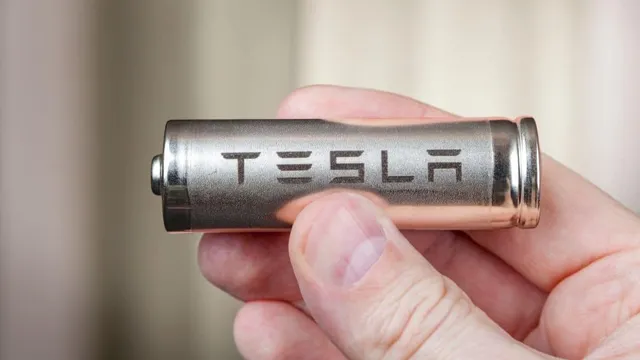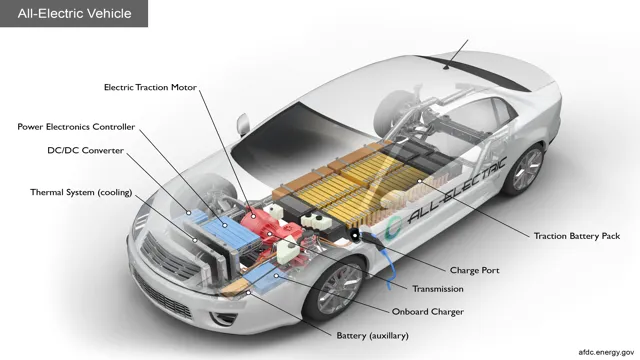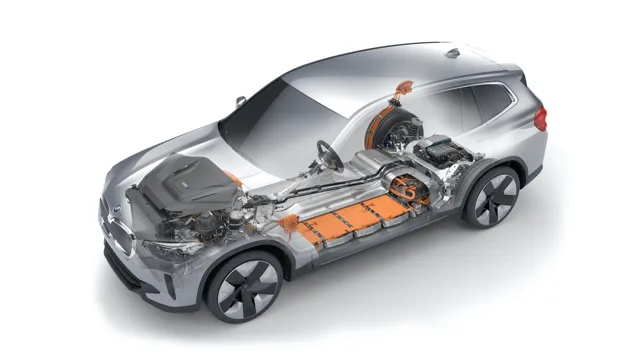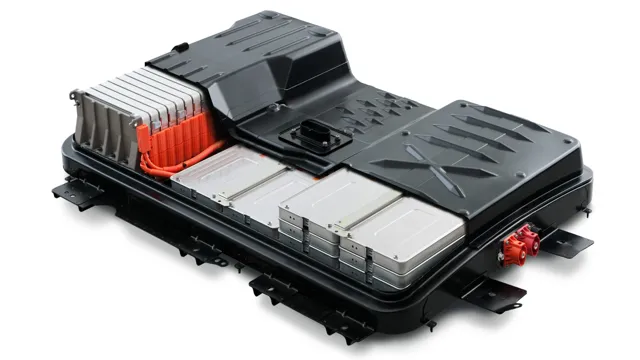Power up your Ride: The Ultimate Guide to Choosing Batteries for Electric Cars
As electric cars become more popular, one important aspect that needs to be considered is the battery solutions. These cars rely on high-performance batteries that power the entire vehicle, so it’s crucial to have reliable and efficient options available. From advanced Lithium-ion batteries to hydrogen fuel cells, manufacturers are working hard to develop battery solutions that can support the needs of modern electric cars.
But what makes one battery better than another? How do these battery solutions impact the performance and overall driving experience of electric cars? Let’s delve deeper into the world of battery solutions for electric cars and explore the key factors that are making a difference in this industry.
Overview of Electric Car Batteries
When it comes to electric cars, the battery is a crucial component that determines its overall performance. The batteries used in electric cars are typically lithium-ion batteries, which are similar to the batteries used in laptops and smartphones. However, electric car batteries are much larger and have a different structure to accommodate their power and energy requirements.
The battery packs in electric cars are made up of numerous individual cells that are interconnected to provide the required voltage and energy. The capacity of these batteries is measured in kilowatt-hours (kWh) and determines how far an electric car can travel on a single charge. The range of an electric car depends on many factors, such as driving conditions, speed, weather, and driving habits, but having a larger battery capacity can increase the range significantly.
While the cost of electric car batteries is gradually decreasing, it is still a significant part of the overall cost of an electric car. However, the maintenance cost of electric cars is much lower than traditional cars since they require less upkeep and replacement of parts. As the demand for electric cars increases, manufacturers are continually developing new technologies and materials to improve battery performance and reduce costs, making electric cars even more accessible and efficient in the coming years.
Types of Electric Car Batteries
An electric car battery serves as its lifeblood, supplying it with the necessary power to get from point A to point B. With the rise of electric vehicles, there are now various types of batteries available for consumers to choose from. Lithium-ion batteries are the most common type and are widely used in electric cars.
These batteries offer high energy density, allowing electric cars to travel further on a single charge. Nickel-metal hydride batteries, on the other hand, are an older technology but still found in some hybrid electric vehicles. They have a lower energy density than lithium-ion batteries but are more durable and have a longer lifespan.
Solid-state batteries are a new type of battery that is currently being developed. They are expected to offer even higher energy density than lithium-ion batteries, making them a potential game-changer for the electric car industry. These batteries will likely be more expensive initially but could help reduce the cost of electric cars in the long run.
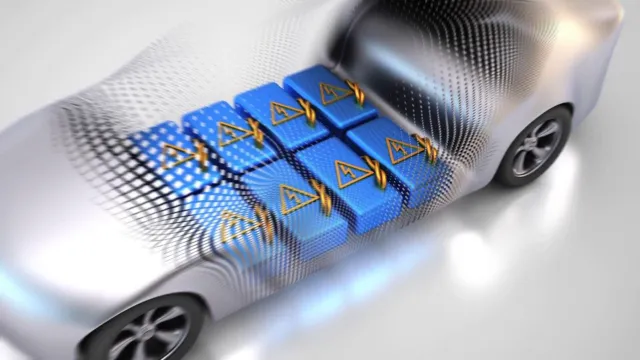
Charging an Electric Car Battery
Electric car technology is evolving at an unprecedented rate, and a critical component in this revolution is the battery. Electric car batteries store the electricity that powers the vehicle, and they come in various forms, including lithium-ion and nickel-metal-hydride. These batteries enable electric cars to produce zero emissions, which makes them environmentally friendly.
Charging the battery is a crucial aspect of owning an electric car, and it can take anywhere from a few minutes to several hours. The charging time depends on the type of charger, the battery’s capacity, and the level of charging necessary. Most electric cars have a built-in system that helps ensure the battery’s longevity by avoiding overcharging or discharging.
However, it is essential to note that electric batteries have a shelf life, and their lifespan depends on several factors, including use conditions and proper maintenance. Regularly charging your car’s battery and following the manufacturer’s recommended care guidelines will help prolong the battery’s life, ensuring that your electric car will operate efficiently for years to come.
Top Battery Brands for Electric Cars
When it comes to electric cars, the battery is one of the most important components. Without a powerful and reliable battery, your electric car simply won’t be able to perform as well as it should. That’s why it’s important to choose the right battery brand for your needs.
Some of the top battery brands for electric cars include Tesla, LG Chem, Panasonic, Samsung SDI, and BYD. These brands have built a reputation for producing high-quality batteries that offer long range and dependable performance. Tesla, for example, is known for its cutting-edge batteries that provide some of the longest ranges on the market, while LG Chem has become a popular choice for manufacturers due to its scalability and flexible design.
Whether you’re looking for the best range or the most reliable performance, there’s a battery brand out there for you.
Tesla Battery Solutions
When it comes to electric cars, the battery plays a crucial role in determining the vehicle’s performance and range. Tesla is one of the most popular electric car manufacturers that continue to innovate and improve their battery technology. Tesla’s battery solutions, including the Powerwall and Powerpack, are designed to provide efficient energy storage for homes, businesses, and industries.
The company’s latest battery technology is known as the 4680, which promises to provide higher energy density, longer range, and faster charging times. However, Tesla is not the only player in the market. Other top battery brands for electric cars include LG Chem, CATL, Panasonic, and Samsung SDI.
These companies offer a range of battery solutions that cater to different types of electric vehicles and individual needs. While Tesla may have a strong reputation in the electric car market, it’s worth exploring all available battery options to ensure you have the best one for your needs.
LG Chem Battery Solutions
When it comes to choosing the right battery for your electric vehicle, it’s important to know which brands are leading the pack in terms of reliability and performance. One top contender is LG Chem Battery Solutions, a company that has been providing high-quality batteries for electric cars for over a decade. LG Chem is known for their innovative technology, efficient production methods, and commitment to sustainability.
Their batteries offer long-lasting power, high energy density, and fast charging times, making them a popular choice among electric vehicle owners. Plus, LG Chem is constantly pushing the boundaries of battery technology, with plans to release a next-generation battery that is even more efficient and powerful. So if you’re looking for a top-notch battery for your electric car, LG Chem is definitely a brand to consider!
Panasonic Battery Solutions
When it comes to electric cars, one of the most important components is the battery. It’s what powers the car and determines how far it can travel on a single charge. There are several top battery brands for electric cars, and one of them is Panasonic Battery Solutions.
They have been producing lithium-ion batteries for over 20 years and are a trusted supplier to many major car manufacturers, including Tesla. Panasonic batteries are known for their high energy density, long cycle life, and fast charging capabilities. They also have a strong commitment to sustainability and are working to develop batteries that are more environmentally friendly.
So, if you’re in the market for an electric car or looking to upgrade your current battery, Panasonic Battery Solutions is definitely worth considering.
Factors to Consider When Choosing a Battery
When choosing a battery for your electric car, there are a few important factors to consider. First and foremost, you want to ensure that the battery has enough capacity to meet your driving needs. You’ll also want to consider factors like the type of battery, the charging time, and the overall lifespan of the battery.
Lithium-ion batteries are currently the most popular choice for electric cars due to their high energy density and long lifespan. However, they can be more expensive than other types of batteries. It’s also important to consider the charging time, as some batteries may take longer to charge than others.
Finally, you’ll want to consider the warranty and customer support offered by the manufacturer, as this can give you peace of mind in case you encounter any issues with your battery down the line. Overall, when choosing a battery for your electric car, it’s important to balance factors like capacity, cost, and reliability to find the right fit for your specific needs.
Battery Capacity and Range
When it comes to electric vehicles (EVs), the battery is arguably the most crucial component. The battery capacity determines the range of the EV, which is the distance it can travel on a single charge. A larger battery will give you a longer range, but it also takes longer to charge and adds weight to the vehicle.
When choosing an EV, it’s essential to consider the battery’s size and range, but also the weight of the vehicle and how often you plan on driving long distances. If you’re looking for an EV to use for daily commutes, a smaller battery may suffice. On the other hand, if you need an EV for extended road trips, you should look for a model with a larger battery.
Additionally, some EVs come with fast-charging capabilities, meaning you can charge up to 80% of your battery in just a matter of minutes, while others take significantly longer. Ultimately, the decision boils down to your specific usage needs and priorities, but keeping these factors in mind will help you make an informed decision.
Cost and Warranty
When choosing a battery, there are two important factors to consider: cost and warranty. Cost is a crucial factor because it can determine the quality and lifespan of the battery. Cheaper batteries may be tempting, but they often have a shorter lifespan and need to be replaced more frequently, which can end up costing you more in the long run.
On the other hand, higher-priced batteries are usually of better quality and last longer, saving you money in the long run. The warranty is also an important factor to consider, as it can provide peace of mind and save you money in case of any defects or malfunctions. A longer warranty period means that you’re more likely to be covered in case of any issues, which is especially important for more expensive batteries.
It’s also important to read and understand the warranty terms and conditions, as some warranties may contain significant limitations or exclusions. Ultimately, when choosing a battery, it’s important to consider both cost and warranty to ensure that you’re getting the best value for your money and a battery that will meet your needs. By taking the time to choose a high-quality battery with a good warranty, you’ll be able to use your device with confidence and avoid unexpected expenses down the line.
Conclusion and Final Thoughts
In conclusion, batteries for electric cars are like the engines of the future. They give us the power to go the distance and reduce our carbon footprint. Just like how a little bit of batter can make all the difference in a cake, the right battery can make all the difference in an electric car.
So, let’s charge up our batteries and drive towards a greener future!”
FAQs
What types of batteries are used in electric cars?
There are several types of batteries used in electric cars, including lithium-ion, nickel-metal hydride, and lead-acid batteries.
How long do electric car batteries last?
The lifespan of electric car batteries varies depending on the type of battery, usage patterns, and environmental factors. Generally, lithium-ion batteries can last up to 10 years or 150,000 miles before needing replacement.
Can electric car batteries be recycled?
Yes, electric car batteries can be recycled. Recycling helps to reduce the environmental impact of battery production and disposal, and also recovers valuable materials that can be used in new batteries.
How do I know when my electric car battery needs to be charged?
Most electric cars have a battery level indicator that shows how much charge is remaining. Drivers can also monitor their battery level and range through the car’s dashboard display or a smartphone app. It is recommended to charge the battery when it reaches 20-30% capacity to ensure optimal battery health and longevity.

